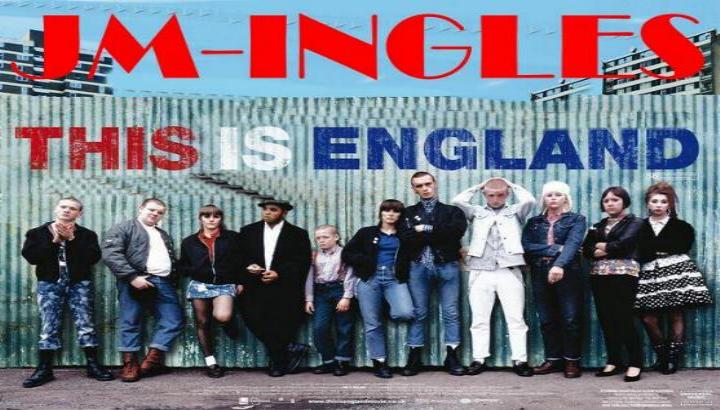POKER!........
JM-Inglés :: English Language :: Projects :: Miniprojects
Página 1 de 1.
 POKER!........
POKER!........
POKER!
Poker is sport from the family of card games that share betting rules and usually (but not always) hand rankings. Poker games differ in how the cards are dealt, how hands may be formed, whether the high or low hand wins the pot in a showdown (in some games, the pot is split between the high and low hands), limits on bets and how many rounds of betting are allowed. In most modern poker games, the first round of betting begins with some form of forced bet. The action then proceeds to the left. Each player in turn must either match the maximum previous bet or fold, losing all further interest in the hand. A player who matches a bet may also raise, increasing the bet. The betting round ends when all players have either matched the last bet or folded. If all but one player fold on any round, the remaining player collects the pot without showing his hand. If more than one player remains in contention after the final betting round, the hands are shown and the winning hand takes the pot.
Players feel that this betting system distinguishes poker from gambling games. With the minor exception of initial forced bets, money is only placed into the pot voluntarily by a player who, at least in theory, rationally believes the bet has positive expected value. Thus while the outcome of any particular hand is determined mostly by chance, the long-run expectations of the players are determined mostly by their actions chosen based on probability and psychology

History
The history is a matter of debate. One of the earliest known games to incorporate betting, hand rankings, and bluffing was the 15th century German game Pochspiel. Poker closely resembles the Persian game of As Nas, though there is no specific description of nas prior to 1890.[2] In the 1937 edition of Foster's Complete Hoyle, R. F. Foster wrote: "the game of poker, as first played in the United States, five cards to each player from a twenty-card pack, is undoubtedly the Persian game of as nas."[3][4] By 1990s some gaming historians including David Parlett started to challenge the notion that poker is a direct derivative of As Nas.[3] There is evidence that a game called poque, a French game similar to poker, was played around the region where poker is said to have originated. The name of the game likely descended from the Irish Poca (Pron. Pokah) ('Pocket') or even the French poque, which descended from the German pochen ('to brag as a bluff' lit. 'to knock'[5] ). Yet it is not clear whether the origins of poker itself lie with the games bearing those names

Poker is sport from the family of card games that share betting rules and usually (but not always) hand rankings. Poker games differ in how the cards are dealt, how hands may be formed, whether the high or low hand wins the pot in a showdown (in some games, the pot is split between the high and low hands), limits on bets and how many rounds of betting are allowed. In most modern poker games, the first round of betting begins with some form of forced bet. The action then proceeds to the left. Each player in turn must either match the maximum previous bet or fold, losing all further interest in the hand. A player who matches a bet may also raise, increasing the bet. The betting round ends when all players have either matched the last bet or folded. If all but one player fold on any round, the remaining player collects the pot without showing his hand. If more than one player remains in contention after the final betting round, the hands are shown and the winning hand takes the pot.
Players feel that this betting system distinguishes poker from gambling games. With the minor exception of initial forced bets, money is only placed into the pot voluntarily by a player who, at least in theory, rationally believes the bet has positive expected value. Thus while the outcome of any particular hand is determined mostly by chance, the long-run expectations of the players are determined mostly by their actions chosen based on probability and psychology

History
The history is a matter of debate. One of the earliest known games to incorporate betting, hand rankings, and bluffing was the 15th century German game Pochspiel. Poker closely resembles the Persian game of As Nas, though there is no specific description of nas prior to 1890.[2] In the 1937 edition of Foster's Complete Hoyle, R. F. Foster wrote: "the game of poker, as first played in the United States, five cards to each player from a twenty-card pack, is undoubtedly the Persian game of as nas."[3][4] By 1990s some gaming historians including David Parlett started to challenge the notion that poker is a direct derivative of As Nas.[3] There is evidence that a game called poque, a French game similar to poker, was played around the region where poker is said to have originated. The name of the game likely descended from the Irish Poca (Pron. Pokah) ('Pocket') or even the French poque, which descended from the German pochen ('to brag as a bluff' lit. 'to knock'[5] ). Yet it is not clear whether the origins of poker itself lie with the games bearing those names

MARIO- Cantidad de envíos : 10
Edad : 31
Empleo /Ocio : Estudiante
Fecha de inscripción : 22/09/2009
JM-Inglés :: English Language :: Projects :: Miniprojects
Página 1 de 1.
Permisos de este foro:
No puedes responder a temas en este foro.
» 1º Bachillerato 2020- UNIT 4
» 1º Bachillerato 2020- UNIT 6
» 4ESO- 2020- UNIT 9
» The Michael Zager Band - Let's All Chant
» Voz pasiva: Ejercicios
» Oraciones condicionales Tipo I + Ejercicios
» Comparativos y superlativos: Ejercicios
» Present Perfect: Ejercicios